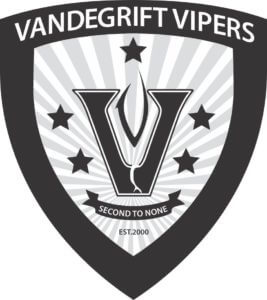 By KIM ESTES, Four Points News
By KIM ESTES, Four Points News
A new College Board program offered in a non-content specific, interdisciplinary format will be available next fall at Vandegrift High School.
Called AP Capstone, the addition is part of the College Board’s Advanced Placement series and is designed to complement all other areas of study.
Students do not have to be in other AP classes to enroll in AP Capstone. “Capstone classes can complement anything for secondary success,” said Lisa Brittain, Leander ISD director of College and Career Readiness.
 The program helps students develop the ability to do inquiry, learn about gathering information, find out what information to trust or how to put that information in context, how to form an argument based on data, evidence and information and, finally, how to communicate it.
The program helps students develop the ability to do inquiry, learn about gathering information, find out what information to trust or how to put that information in context, how to form an argument based on data, evidence and information and, finally, how to communicate it.
It features two classes in succession. AP Seminar is offered to juniors, who will then be eligible in their senior year for AP Research. Because of the sequential schedule, Brittain said, the courses will be rolled out across the next two years.
In addition to VHS, it will be newly offered at Rouse High School too.
It actually enters its second year this fall at Cedar Park High School.
The College Board implemented AP Capstone in 2014 in 114 US schools as well as 22 schools in Canada, Europe and Asia.
In 2015, additional schools were added to total 359 participating U.S. high schools, including CPHS and 25 other Texas high schools.
“School districts had to apply and then be invited to participate. CPHS was the only central Texas high school invited,” said Brittain.
Two classes of 55 juniors represent LISD’s first AP Capstone class.
“We are very pleased with the enrollment. The class has been a productive struggle…it’s not a cookie cutter course,” Brittain said.
As the first LISD Capstone teacher, Cheryl Collins, shared how the program was implemented at CPHS and how students are responding.
After the first grading cycle, Collins surveyed the students: 86 percent said they had learned skills that could be used in another course and 88 percent said it was valuable to their academic development.
Anecdotally, she also reported, “Some of my favorite days are to hear the students come in and say how easy something was in another course because we had already practiced it in Seminar.”
“One of my favorite quotations is when one student commented, ‘It’s a good thing I’m taking Stats right now, or I wouldn’t understand this article.’ That’s the interdisciplinary aspect,” she added.
As each project comes to completion, Collins said it is great to hear the kids comment on how much they’ve learned. “It’s music to a teacher’s ears,” she added.
It must be especially pleasing, as Collins has served as both teacher and curriculum composer.
“While the College Board supplies the framework, there are no materials, so it’s left up to the individual teacher to develop curriculum. It’s been very time consuming,” she said.
In the first semester, Collins taught specific research, composition, reading and presentation skills.
For the most part, students select their own subject matter. Collins started the year off with a unit of study that she selected, allowing student choice within that scope of study. After that first unit, since mid-October, students have selected their own topics and materials.
“In the second semester, my role is to help them establish and meet deadlines, give moral support and cheer them on when they’re feeling overwhelmed,” she said.
During the Research year, students select a topic of interest that they work on all year.
“They will be paired with a mentor, an expert in that field of study, and they must develop and conduct their own field study and/or experiment within that topic. The accumulation of information gathered leads to a 5,000-word report followed up with a 20-minute presentation and oral defense to a panel of judges,” Collins explained.
At graduation, certificates are awarded to students who have completed both AP Capstone courses and earned scores of 3 or higher.
Students earning scores of 3 or higher in both AP Capstone courses, plus a 3 or higher on four additional AP exams of their choosing, receive AP Capstone diplomas.
The College Board reports many universities have confirmed their support for AP Capstone by signing a statement of support and/or by developing credit and placement policies for AP Seminar, AP Research or both.
For a complete list of supporting colleges and for more information on AP Capstone, go to https://lp.collegeboard.org/ap-capstone or call VHS at (512) 570-2300.

